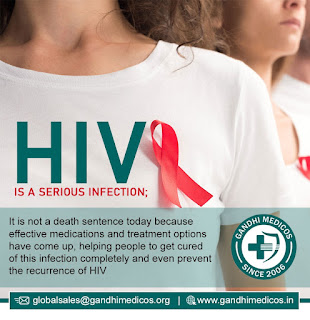Genuine HIV Medication: Viropil Available

For genuine and affordable HIV treatment, buy Viropil Tablet from Gandhi Medicos. We're dedicated to providing authentic HIV medicines at competitive prices. Our focus is on customer satisfaction and ensuring access to vital medications like Viropil for those living with HIV. Choose Gandhi Medicos for reliable service and quality HIV care solutions. Order Now : gandhimedicos.in Call: 9999064250 Web: https://www.gandhimedicos.in/product/viropil/ Mail us: info@gandhimedicos.in
